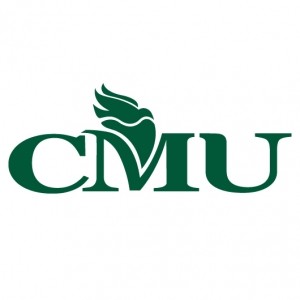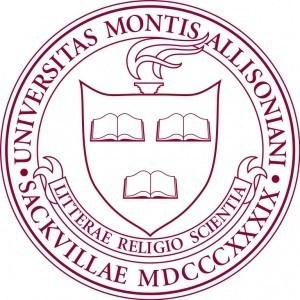Photos of university / #WhyRyerson
The Bachelor of Commerce in International Economics and Finance at Ryerson University offers students a comprehensive education designed to prepare them for dynamic careers in the global economic and financial sectors. This program combines rigorous coursework in economic theory, international trade, finance, and economics with practical skills tailored for the ever-changing international marketplace. Students will gain a thorough understanding of macroeconomic and microeconomic principles, international monetary systems, financial markets, and global economic policies, equipping them to analyze complex economic issues faced by organizations and governments worldwide.
Throughout their studies, students will develop critical thinking, analytical skills, and quantitative abilities essential for success in careers such as international banking, treasury management, financial analysis, economic consulting, and various roles within multinational corporations. The program emphasizes experiential learning through case studies, simulations, and collaborative projects that mirror real-world challenges. Additionally, students have opportunities to participate in internships, cooperative education placements, and exchange programs, expanding their international exposure and professional networks.
Ryerson University’s state-of-the-art facilities, industry connections, and dedicated faculty members enhance the learning experience by integrating current industry trends and research. The curriculum is designed to be flexible, allowing students to choose electives aligned with their career interests, whether in corporate finance, risk management, global trade policies, or emerging financial technologies. Graduates leave the program well-equipped with the specialized knowledge, practical skills, and global perspective necessary to thrive in a competitive international environment. The program aims to foster a deep understanding of global economic systems and prepare students to contribute valuably to international finance, economic development, and policy-making institutions.
The Bachelor of Arts in International Economics and Finance at Ryerson University offers students a comprehensive understanding of the global economic landscape and financial systems. This program is designed to equip students with the theoretical knowledge and practical skills necessary to analyze international economic issues, manage financial risks, and understand the complexities of global markets. Throughout the program, students explore core subjects such as microeconomics, macroeconomics, international trade, and finance, along with specialized courses in economic policy, financial analysis, and international monetary systems.
The curriculum emphasizes a blend of economic theory, quantitative methods, and real-world applications, preparing graduates for careers in banking, finance, government agencies, international organizations, and multinational corporations. Students have the opportunity to develop critical analytical skills, learn about economic modeling, and engage with current global economic challenges through case studies and research projects. The program also promotes cultural awareness and effective communication skills, which are essential for working in diverse international environments.
In addition to coursework, students gain practical experience through internships, co-op placements, and collaborative projects with industry partners. This experiential learning approach allows students to apply their knowledge in real-world settings, build professional networks, and enhance their employability upon graduation. The program fosters a multidisciplinary perspective by integrating insights from political science, statistics, and business, thus providing a well-rounded education suitable for dynamic international economic and financial environments.
Graduates of this program are well-prepared to pursue graduate studies or professional certifications in economics, finance, or related fields. They emerge with a solid foundation in economic principles, financial analysis, and policy-making, enabling them to make informed decisions and contribute to global economic development. Whether aiming for a career in international finance, consulting, or policy analysis, students will find this program offers a rigorous, comprehensive pathway to success in their chosen professions.
Program Requirements for Bachelor of Arts in International Economics and Finance at Ryerson University:
Admission to the International Economics and Finance program at Ryerson University requires applicants to have completed the Ontario Secondary School Diploma (OSSD) or equivalent, with successful completion of required prerequisite courses including English, Math, and other relevant subjects. Applicants must meet the minimum admission average, which varies annually but typically ranges around the mid-70s to low 80s percentile. International students must demonstrate English language proficiency through tests such as IELTS or TOEFL, with minimum scores generally set at a 6.5 overall on IELTS or a 86 on the TOEFL iBT.
The curriculum of the International Economics and Finance program comprises a combination of core courses, electives, and experiential learning opportunities designed to provide students with a comprehensive understanding of global economic systems, financial markets, and international trade policies. Core courses typically include Principles of Microeconomics and Macroeconomics, International Economics, International Finance, Global Financial Markets, and Financial Accounting. Students are also required to complete courses in quantitative methods, such as Statistics and Econometrics, to develop analytical skills necessary for economic modeling and data analysis.
To graduate, students must earn a minimum number of credits as specified by the program curriculum, usually around 120 credit hours, including mandatory internships or cooperative education placements. These experiential learning components are integral to the program, offering practical exposure to international economic environments and financial institutions. Students are encouraged to participate in study-abroad programs to enhance their global perspective, which are often facilitated through partnerships with international universities.
Elective courses offer specialization opportunities in areas such as International Trade Policy, Investment Analysis, Banking and Financial Institutions, and Emerging Markets. The program also emphasizes developing soft skills such as communication, teamwork, and ethical reasoning, which are required to operate effectively in diverse international contexts. Capstone projects or thesis work are typically required in the final year, allowing students to conduct independent research on a significant topic within international economics and finance, applying theoretical knowledge to real-world issues.
Students are expected to maintain a minimum academic standing throughout their studies, with progression requirements in place to ensure readiness for advanced coursework and professional practice. The program may also include opportunities for certifications or workshops in financial software or foreign languages, further enhancing employability after graduation. Upon completion, graduates are prepared for careers in international banking, economic analysis, financial consulting, and policymaking, among others.
The Bachelor of Arts in International Economics and Finance at Ryerson University offers comprehensive financing studies designed to equip students with the knowledge and skills necessary to excel in global economic and financial environments. The program emphasizes a strong foundation in economic theory, quantitative analysis, and financial management, providing students with practical insights into how international markets operate and how financial decisions are made in a global context. Regarding tuition fees, international students can expect to pay approximately CAD 25,000 to CAD 30,000 per year, depending on course selection and residency status. In addition to tuition, students should budget for mandatory ancillary fees, books, supplies, and living expenses, which vary based on individual circumstances and housing choices. For financial aid, Ryerson University offers a variety of scholarship opportunities for both domestic and international students, including entrance scholarships, merit-based awards, and need-based grants. Students are encouraged to apply early and explore external funding sources such as government grants, private scholarships, and international student aid programs to help offset educational costs. Work-integrated learning components integrated into the program also enable students to gain paid internships and cooperative education placements, providing valuable professional experience and income opportunities. The program's curriculum is designed to balance theoretical coursework with practical application, ensuring graduates are well-prepared for careers in international banking, finance, government agencies, and multinational corporations. The university also provides resources for financial planning, student loans, and budgeting advice to assist students throughout their studies. Overall, the financing options and resources available through Ryerson University support students in managing the costs associated with this rigorous program while maximizing educational and career outcomes.
International Economics and Finance at Ryerson University offers students a comprehensive understanding of the global economic landscape, with a focus on financial markets, economic policy, and international trade. The program is designed for students aiming to develop analytical skills and practical knowledge to navigate complex economic environments across different countries and regions. It combines core courses in economics, finance, and international business, providing a multidisciplinary approach to understanding global economic issues. Students will engage with topics such as economic theory, monetary policy, currency exchange, international trade agreements, and global financial systems. The curriculum emphasizes quantitative methods, data analysis, and critical thinking to prepare graduates for careers in banking, government, international organizations, or consulting. The program may include opportunities for internships, co-op placements, or study abroad experiences, enhancing practical skills and employment prospects. Faculty members are experienced professionals and researchers who bring real-world insights into classroom discussions. Graduation from this program equips students with a solid foundation in economic analysis and financial decision-making, enabling them to contribute effectively in international economic policy, financial analysis, or related roles. The degree is suitable for students interested in understanding how global economic forces influence local markets, and how financial systems operate on an international scale. Overall, the program aims to produce well-rounded graduates equipped with the knowledge and skills to address challenges and seize opportunities in the interconnected global economy.


